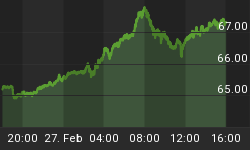
Special Guest: Mark Thornton PhD, is Senior Fellow at the Mises Institute. He serves as the Book Review Editor of the Quarterly Journal of Austrian Economics. His publications include The Economics of Prohibition (1991), Tariffs, Blockades, and Inflation: The Economics of the Civil War (2004), The Quotable Mises (2005), The Bastiat Collection (2007), An Essay on Economic Theory (2010), and The Bastiat Reader (2014). Dr. Thornton served as the editor of the Austrian Economics Newsletter and was a member of the Editorial Board of the Journal of Libertarian Studies and several other academic journals. He has served as a member of the graduate faculties of Auburn University and Columbus State University. He has also taught economics at Auburn University at Montgomery and Trinity University in Texas. Mark served as Assistant Superintendent of Banking and economic adviser to Governor Fob James of Alabama (1997-1999), and he was awarded the University Research Award at Columbus State University in 2002. He is a graduate of St. Bonaventure University and received his PhD in economics from Auburn University.
35 Minute Video Interview
Financial Repression
"A financial scam of the government over the private economy ... It is aimed at taking advantage of their citizens, savers and investors."
Government authorities are:
- Printing money,
- Issuing enormous amounts of debt,
- Suppressing interest rates,
... all with the intention of exploiting the worker and inflating the value of the goods they buy, as wages fail to keep up. Savers are now receiving negative real rates of returns which is the government extracting resources for themselves at the expense of the common man.
Waging War on Savers
Winners: The policies of Financial Repression help:
- Banks,
- Large Corporations,
- Government,
- Large Borrowers,
Losers: The losers are:
- Savers,
- Consumers,
- Producers,
- Laborers,
- Entrepreneurs
Policies: The world wide economy is suffering as a result of the policies which include:
- Inflation,
- Zero Interest Rates
- Quantitative Easing,
- Heavy Regulation (Healthcare and Banks)
This is an enormous problem in the modern context.
Accumulation of Debt
Debt levels are now at critical levels:
- Excess accumulation of debt has become a critical burden to the productive capacity of the global economy,
- Significant levels of global investment is presently malinvestment,
- Excess global capacity has been used to produce none-productive assets,
- Lack of Price Discovery and Mispricing of Risk are distorting economies and investment behavior,
- Many parts of the economy are fragile and a recssion is now knocking on the door of the US,
- .... and more
Austrian Prescription
- The Federal Reserve needs to get out of the interest rate markets and allow the markets to work properly,
- The Federal Government needs to balance budgets and cut back spending tremendously,
- The Government needs to signal to markets particpants that they are not going to see their taxes increased significantly,
- The Government needs to demonstrate they are going to do something about the national debt and unfunded liabilities.
These policy positions would begin to incent investment very quickly.
The Central Problem is Unsound Money
















